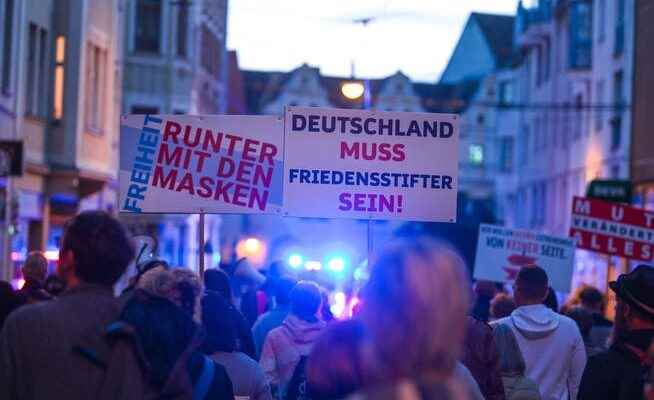Those who rejected German corona policy often spoke out against military support for Ukraine in this country. What do the two topics have to do with each other?
Criticism of the German corona measures and the country’s Ukraine policy last Monday in Halle, Saxony-Anhalt.
In the second year with the corona virus: A private chat group made up of German scientists and journalists critically discusses the country’s pandemic policy. There is a broad consensus that parliaments are handing over too much responsibility to the federal and state governments, and that many “measures” by the executive are a threat to freedom. In addition, studies are exchanged in the group, essays are sent back and forth, and expert contacts are arranged.
At the end of February 2022, the focus of the group will change. Suddenly it’s about the Russian attack on Ukraine. Or rather: the alleged fake news about the Russian attack on Ukraine. There is now talk of American imperialism and of “provocations” by NATO. The skeptics of the Corona period have become people overnight who put Vladimir Putin’s attack on a free country into perspective.
The chat group is not an isolated case. Almost a third of the German population is currently “critical of measures” in relation to Corona. And more than half of them, 55 percent, are also against sanctions against Russia. The opinion research institute Insa collected this in September in a representative survey across Germany. For comparison: in the general population, only 33 percent reject the sanctions.
The road from Corona to Putin
Pros and cons can be politically located in Germany: while the supporters of the Greens are particularly in favor of tough corona measures and maximum support for Ukraine, according to Insa, 70 percent of AfD supporters are against the corona measures and 80 percent against them Percent against continuing the sanctions against Russia.
How do political science, protest research and social psychology explain this strange combination of topics? “In terms of content, there is actually no way from the topic of Corona to the topic of Putin,” says Werner Patzelt, political scientist at the Technical University of Dresden. “But in fact, in the perception of many people, immigration, the pandemic and the Russian war are linked by the feeling: Whatever we object to, the political class does not listen to us, we are only enemies of the constitution anyway.”
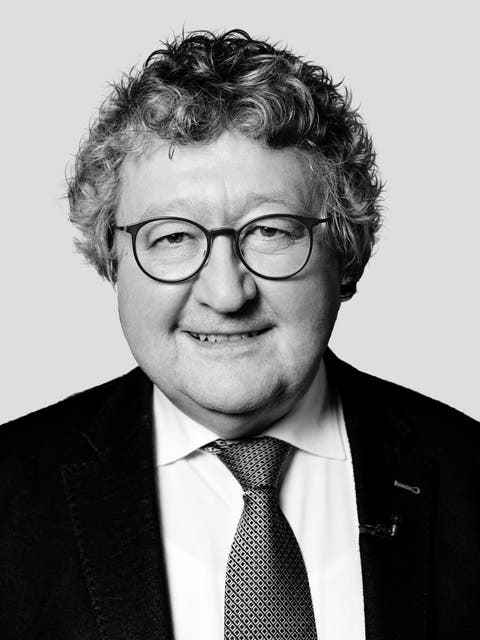
Political scientist Werner Patzelt.
This attitude first played a role in the Dresden Pegida protests from 2014, says Patzelt, who examined in detail the movement that emerged during the German refugee crisis, practically in front of his institute’s door. “Meanwhile, those who were refused talks with the remark that they were ‘rabble’ are now refusing to talk to the political class.” Pegida, who no longer remembers, stood for “Patriotic Europeans against the Islamization of the West”.
In Patzelt’s view, it will take years to improve the disrupted communication between citizens and politicians: “This can only succeed if politicians and journalists give up their tendency to want to teach people pedagogically.”
Conspiracy theories about climate change and NATO
The cultural scientist Piotr Kocyba from the Berlin Institute for Protest and Movement Research, on the other hand, believes that pedagogy – or rather political education – is necessary when dealing with the protest milieu that has gathered around the topics of Corona and Russia sanctions. “Not everyone who took to the streets with the freedom argument against Corona was actually unreservedly for democracy,” says Kocyba. “Among them were many people who, although they talked about basic rights, actually rejected the democratic institutions.”
In eastern Germany in particular, the current protests are being carried out by people who are politically far right. “Many of them, not all of course, are prone to conspiracy theories, whether it’s about the supposedly nonexistent climate change or the evil Nato attacking Russia from Ukraine.” He doesn’t want to be misunderstood, says Kocyba: “Protests in themselves are not wrong at all. But the politicians responsible have to react very differently than before. Mere moralizing is useless.”
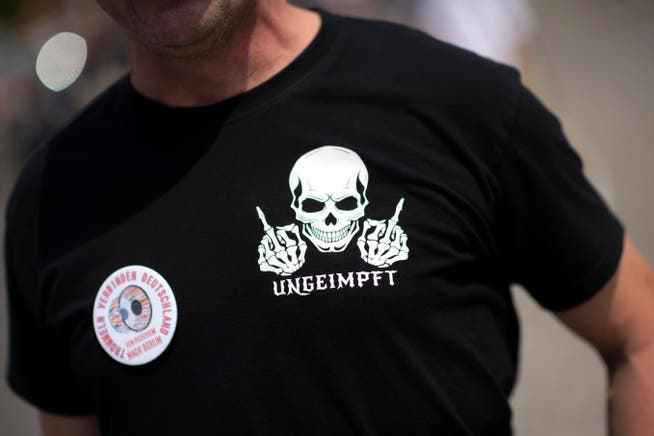
A so-called lateral thinker at a demo in July in Berlin.
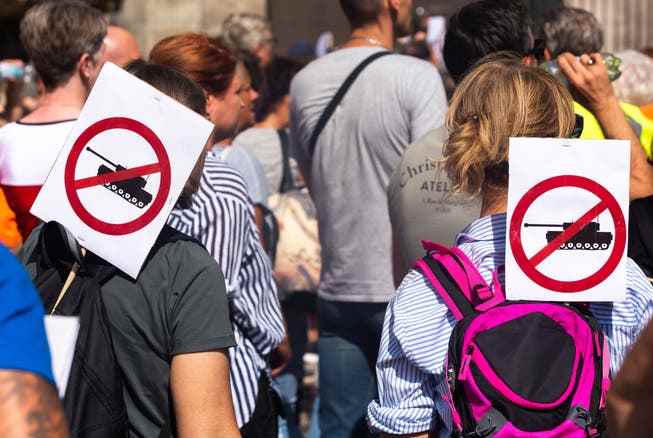
Against arms deliveries to Ukraine: protest scene in September in Cologne.
Stephan Grünewald is a psychologist and founder of the Cologne market research institute Rheingold. He approaches the topic differently than the two political scientists. “The refugee crisis in 2015, the two years of Corona and now the double crisis in Ukraine, which is simultaneously about the risk of war and energy shortages: All of these events are not perceived as natural disasters, but as situations that are at least strongly influenced by political decisions,” he says. In all three cases, feelings of insult and paternalism arose.
Grounded by the head of government
The Corona period reactivated feelings of powerlessness that everyone knows from childhood. “Suddenly you’re no longer a responsible citizen, but get grounded by the heads of government,” says Grünewald. If, during the energy crisis, prime ministers like the Green Winfried Kretschmann from Baden-Württemberg gave tips on how to use washcloths to save water, that would be perceived as the ultimate paternalism.
But not only street demonstrators, intellectuals and artists have also publicly opposed the corona measures and the arms aid for Ukraine. They have nothing to do with the right-wing political camp. How do you do them justice?
Elisa Marie Hoven is a professor of criminal law at the University of Leipzig. She publicly criticized German corona policy. At the end of April, she signed an open letter from feminist Alice Schwarzer and others calling on Chancellor Olaf Scholz not to support Ukraine with heavy weapons. Hoven defends himself against the accusation of naïve Putin-friendliness, which was leveled at many of the signatories.
“I think I’m driven by skepticism against majority opinions that are sold as absolute truths,” says Hoven, “and I think hesitation in a situation of uncertainty is more right.” There is no goal that can be bought at any price, says the lawyer, and from her point of view there is a growing tendency in Germany to subordinate everything to a major goal, regardless of the losses.
Michael Bröning, political scientist and representative of the SPD-affiliated Friedrich-Ebert-Foundation in New York, sees it similarly: “The crises are changing, but the crisis debates are increasingly following the same pattern: outrage is followed by a supposed lack of alternatives, which ultimately results in the moral discrediting of opposing positions flows. The Covidiots are exchanged for the supposed subjugation pacifists.” In the end, an unholy trinity of indignation, rigor and exclusion emerges.
“In such a discourse, much would be gained if Ukraine’s military build-up, which is actually required, was at least rhetorically linked to moral disarmament,” says Bröning.
Differentiation or partisanship?
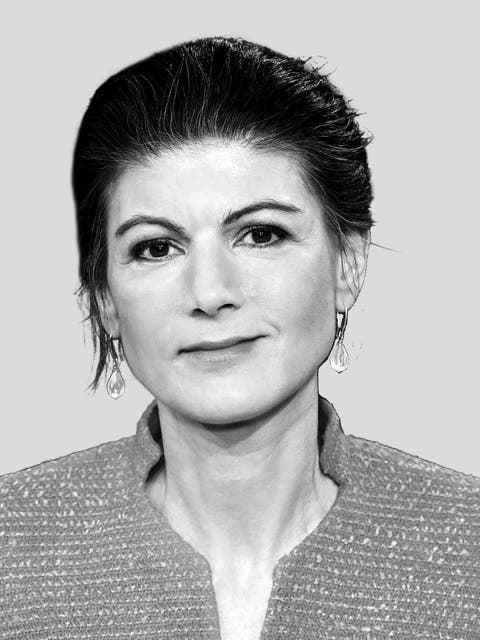
Sahra Wagenknecht, member of the Left Party.
She has often thought about the question of why so many critics of German corona policy are also against the Russia sanctions, says Sahra Wagenknecht, member of the Bundestag for the Left Party and author of the bestseller “The Self-Righteous”. Superficially, there is hardly any connection between the topics. “The only way I can explain it is that the ‘dissenters’ in both cases are predominantly people who don’t just get their information from the mainstream media and who share a basic skepticism about government narratives, so they generally tend to question things more strongly what they are told.”
Juli Zeh is one of these skeptics. With novels such as “Unterleute” and “Über Menschen” she is one of the most successful contemporary writers in Germany. When asked what connects the Corona protest and Russia sanctions, the doctor of law replies: “In my opinion, the common ground is very simple. In both cases, a lack of consideration with the necessary assessments of the individual parameters is criticized – which of course cannot be made by individuals, but only on the basis of an objective discourse.»
Since speaks the Brandenburg constitutional judge Zeh. The novelist lets the main character of her lockdown book ‘On People’ put it differently: ‘Dora doesn’t like absolute truths and authorities based on them. She doesn’t want to fight to be right and doesn’t want to be part of an opinion group.”
